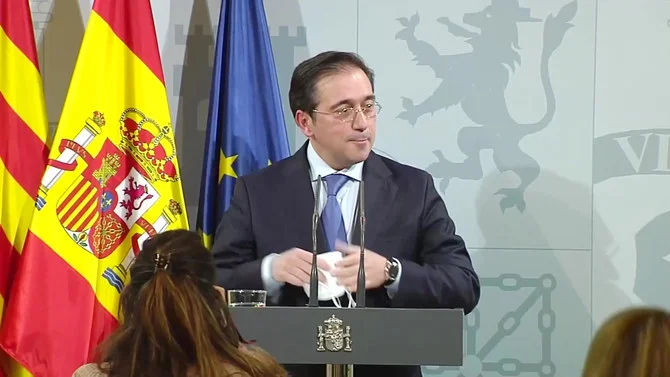On March 19, 2022, Algeria recalled its ambassador from Madrid in protest of Spain’s decision to endorse Morocco’s 2007 autonomy plan for Western Sahara, a disputed former Spanish colony. The Algerian Foreign Ministry condemned Spain’s “abrupt about-turn” from its decades-long stance of neutrality in the conflict between Morocco and the Algeria-backed Polisario Front, which seeks independence for the territory. The ministry expressed shock at the statements from Spanish authorities, particularly Foreign Minister Jose Manuel Albares, who on March 18 described Morocco’s plan as the “most serious, realistic, and credible basis” for resolving the conflict. Algeria’s immediate recall of its ambassador signaled deep dissatisfaction with Spain’s shift, highlighting strained regional dynamics.
Spain’s Policy Reversal and Regional Tensions
Spain’s endorsement of Morocco’s autonomy proposal marked a significant departure from its historical neutrality, a stance rooted in its role as the former colonial power in Western Sahara until 1975. The Polisario Front reacted angrily, accusing Spain of betraying international legitimacy and calling for political pressure to reverse the decision. The movement emphasized that the United Nations, African Union, European Union, International Court of Justice, and European Court of Justice do not recognize Moroccan sovereignty over Western Sahara. The Polisario continues to demand a UN-supervised referendum on independence, as outlined in a 1991 ceasefire agreement that collapsed in November 2020 when Morocco reopened a highway to Mauritania, prompting renewed hostilities.
Migration and Geopolitical Motivations
The Spanish policy shift was partly driven by migration concerns, following tensions with Morocco. In April 2021, Spain’s decision to allow Polisario leader Brahim Ghali to receive medical treatment in a Spanish hospital provoked a strong reaction from Rabat. In May 2021, Moroccan border guards relaxed controls, allowing hundreds of migrants to storm the Spanish enclave of Ceuta, an EU outpost. Bernabe Lopez, a professor at the Autonomous University of Madrid, noted that Spain sought stricter Moroccan border control to prevent such incidents, influencing Madrid’s alignment with Morocco’s position. Morocco welcomed the change, calling it “constructive,” while Algeria viewed it as a betrayal, especially given Spain’s reliance on Algerian gas, which accounted for over 40% of its imports in 2021.
International Context and Precedents
Spain’s move followed a broader trend of Western support for Morocco’s autonomy plan. In December 2020, the Trump administration recognized Moroccan sovereignty over Western Sahara in exchange for Morocco normalizing ties with Israel, a decision upheld by the Biden administration. In early March 2022, US Deputy Secretary of State Wendy Sherman reaffirmed support for Morocco’s plan as “serious, credible, and realistic” during a visit to Rabat. These developments exacerbated tensions with Algeria, which severed diplomatic ties with Morocco in August 2021, citing “hostile actions.” The ongoing UN peacekeeping mission (MINURSO), deployed since 1991, continues to face challenges, with recent clashes reported, including Polisario claims of killing 12 Moroccan soldiers in February 2022.
Implications for North African Relations
Algeria’s recall of its ambassador underscored the deepening rift with Spain and Morocco, complicating regional diplomacy. Spain’s attempt to mend ties with Morocco while maintaining relations with Algeria, a key gas supplier, highlighted the delicate balance Madrid must navigate. The Western Sahara conflict remains unresolved, with UN envoy Staffan de Mistura’s efforts to restart negotiations facing obstacles amid renewed fighting. Algeria’s strong support for the Polisario and Spain’s policy shift have further polarized the region, with potential implications for trade, migration, and security.






